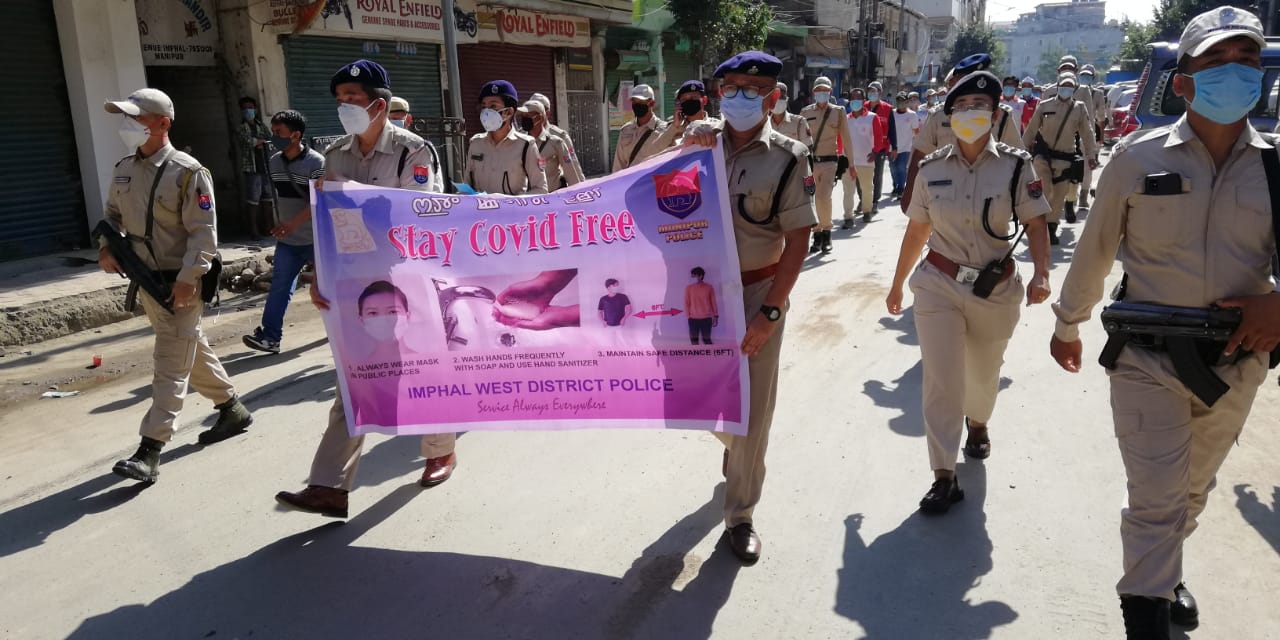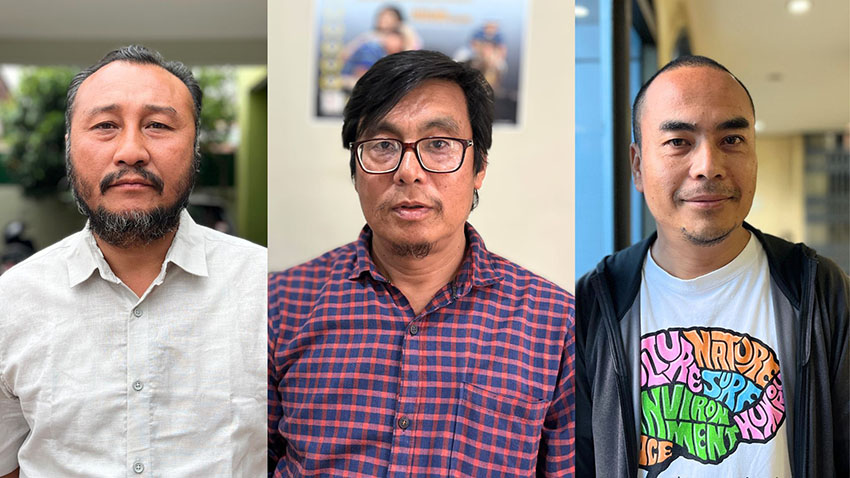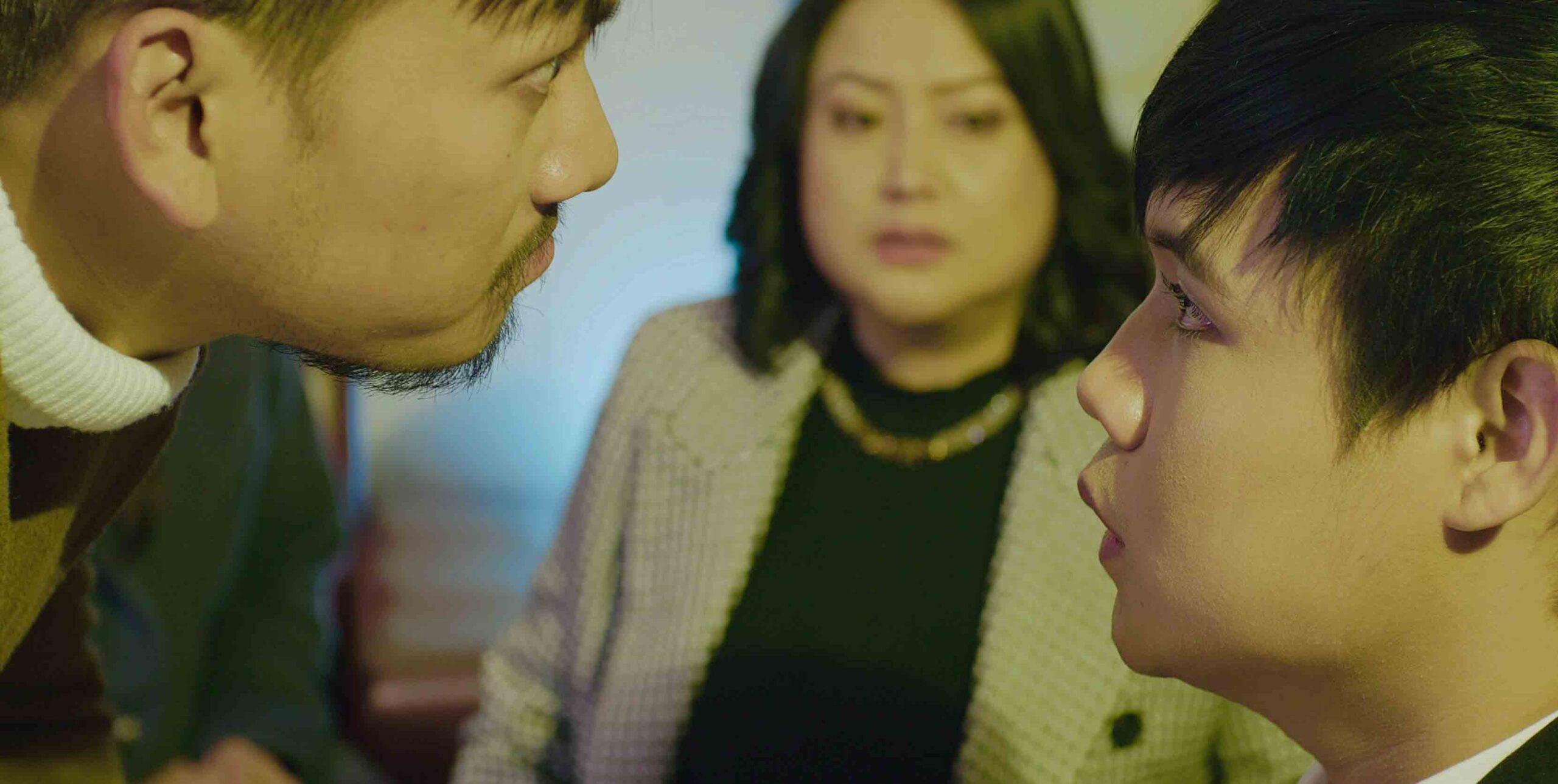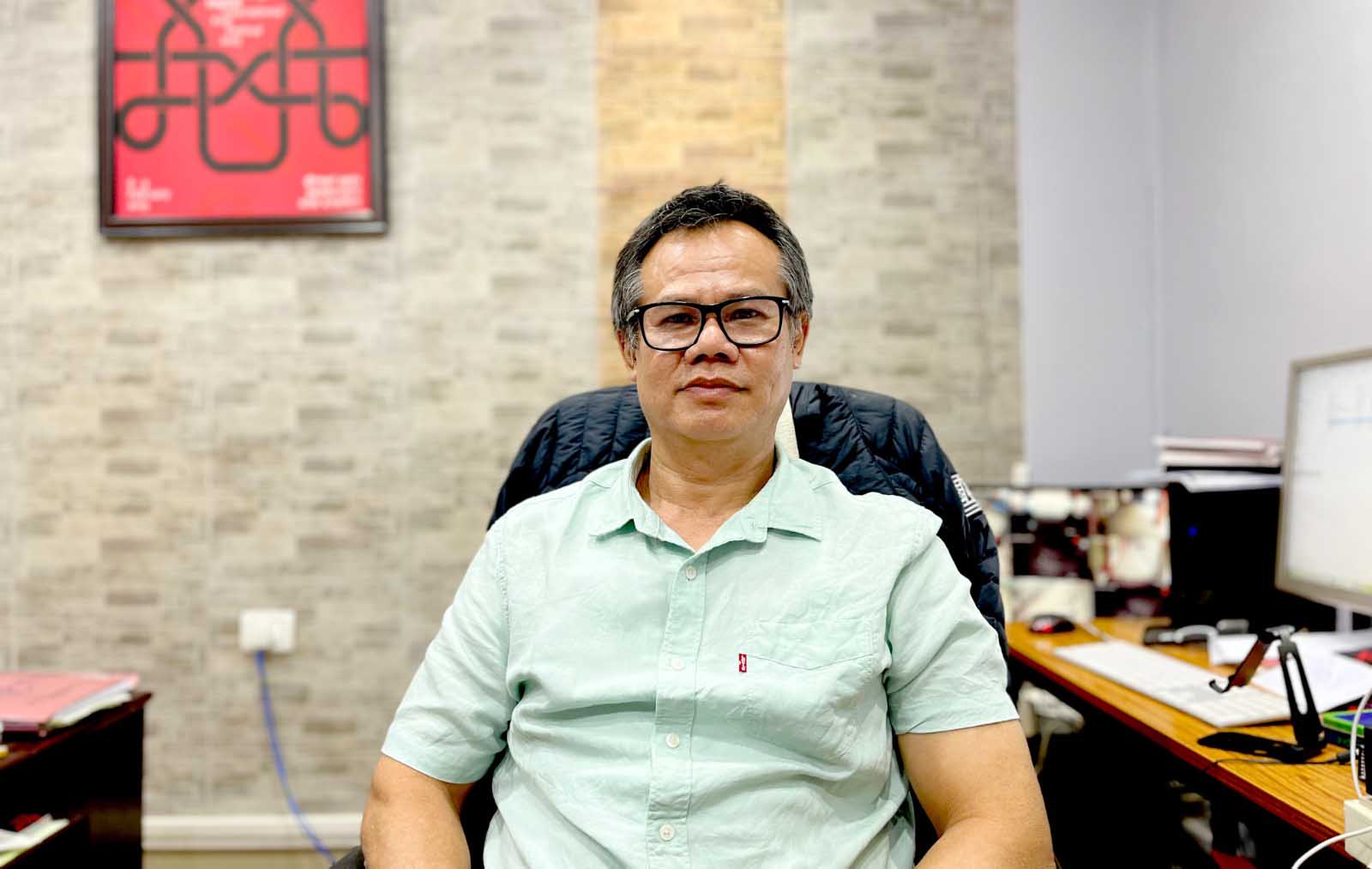Dean of Academics and Head of Department of Community Medicine, RIMS, Dr. Brogen Akoijam tells R.K. Lakhi Kant in a conversation that the Covid-19 pandemic has overwhelmed the system but lost ground can still be regained if the government, scientists and local community join hands and not lose trust in good citizenship and a scientific temper.
Lakhi Kant: Community medicine I believe requires mass sensitization and awareness programs. How far do you think it has worked in the past one and a half years or so of the pandemic?

Dr. Brogen: In the first wave laxity was noticed in arrangements concerning the quarantine centers and following of SOPs. The community engagement started very late. Regarding the second wave the fact that it would be coming was predicted and known all over the world, and it’s obvious the state didn’t prepare itself. All stakeholders, not only government but public also did not prepare though it was known this wave would come. This could be seen on all fronts. It can’t be called complete negligence though, because that would pertain to how the system behaved in fighting the virus. If every stakeholder including government, health department and public had continued doing the good work they were doing during the first wave maybe the extent and impact of the second wave wouldn’t have been so much.
Generally, the performance has not been good and satisfactory. And if you ask why this is so, the answer could only be that preparedness was not there in government departments, public and all other stakeholders involved.
Lakhi Kant: Are students only a potential vulnerable group which can spread the virus, or also a community of learners whose education should be taken care of?

Dr. Brogen: As a population, not only the students, but everyone can potentially spread the infection. The disease is new and nobody has developed the immunity against the infection. Also, vulnerable would mean the group which we marked out from the very beginning for high-risk mortality, those who have co-morbidity. As far as the virus travelling from one to another, it can happen with anyone. The school students also are potential spreaders. Even if they might not get ill, they can spread the virus to other members of their family. So, the opening of schools etc., is a difficult decision. Their learning may stop for a year or two. This pertains to medical schools and engineering schools also and all other sectors. This gap in education will be something we will have to discuss at a later date.
Regarding how soon schools can reopen we can expect that if the vaccination program is completed. India is a huge population so we can expect vaccinations for everyone by 2022 only. It’s a substantial population and another reason is that in the beginning there was vaccine hesitancy. One more factor is the demand and supply of vaccines. We want at least 80% of the population to be vaccinated, but in a smaller state like Manipur it could be accomplished sooner than India as a whole.
Lakhi Kant: On the ground, only the police have been the guardian of maintaining SOPs. Do you think the participation of the civil society has been less?
Dr. Brogen: I mentioned this earlier during the first wave also. Whenever something important involving the people occurs with important decisions to be taken, the community has to be engaged. Without this engagement it becomes a matter of forcibly doing something, and this usually does not give successful results. Community and public participation are vital. The community participation during the first wave started late, but in the second wave it is very less or missing. Maybe they are bit scared by the way the virus is spreading, still those who have been vaccinated or those who have already been infected earlier and recovered can be engaged in community measures in the leikais. It’s more important to ensure the SOPs are maintained in the leikais. Mobilization for vaccination and arrangements for home isolation and referral and monitoring work at the neighborhood can be taken up by the community members and they can be a link in controlling the spread.
Lakhi Kant: Do you think the social contract and trust has not been honored by people in responsible positions who are supposed to provide food relief, government allowance etc., to the needy people under their care?
Dr. Brogen: I have not studied this personally and will find it difficult to convince whether or not this contract has been honored. But I would say from what was generally reported in the newspapers, it seems individuals have done some work for relief distribution for food and other materials. But apart from work at this level, certainly there should be a system for continued support, especially during the lockdown period for the marginalized community through the public distribution system. As I said earlier, community participation in the leikais helps in identifying who is more needy in the leikai. Online distribution has also been there for some well to do people. But those who cannot do this, the marginalized, have to be taken care of by coordination among the officials and the community people.
Lakhi Kant: Healthcare is vastly neglected, including at schools. Does the pandemic provide an opportunity to rethink and revamp the health infrastructure?
Dr. Brogen: Among the diseases there are the communicable diseases and these were predominant in earlier times. In the earlier centuries many people died of these, like for instance the Spanish flu, tuberculosis, polio, and whooping cough in children. But as development took place, healthcare improved, nutrition improved and vaccines came out, and now we don’t see much of these diseases. Then non-communicable diseases which are not spread by germs, like diabetes, heart diseases like cardiac failure and cancer are predominant now. The fact that communicable diseases and pandemics will take place off and on has already been predicted and accepted by scientists all over the world.
Earlier the occurrence of infectious diseases was as frequent as 13-15 years, but the gap now is more. In India also it’s already known and also there are plans to fight infectious diseases, but these plans are not executed properly. There’s a program called Integrated Disease Surveillance Program in the country. This surveillance program needs to be improved in Manipur also. They have a surveillance system for disease and earthquakes under this. The idea is to pick up the warning signals.
Secondly, since it’s already predicted these infectious diseases will come off and on, large infectious disease hospitals are required. If we had a big 1000-bedded hospital during this pandemic, we could have done better this time. I have heard plans are there for India as a whole and in a way this Corona pandemic episode is a blessing in disguise. Although it’s very unfortunate and sad so many are dying, we have come to know what all is lacking in the health system, and also who is a human being and what is the relation between us. Corona has shown us what the deficiencies are and we can learn a lesson from this for times to come. Whenever such a pandemic takes place in future, we need rethinking and a planned approach.
Lakhi Kant: Following government restrictions blindly would be a sign of good citizenship, or relying on scientific temper and evidence be called good citizenship?
Dr. Brogen: Like I said earlier, both have to be combined. Whenever some public matter is to be taken people have to be also engaged in it to know things together. Regarding the pandemic lockdown, it is more of a political decision. It’s not that the scientific part is missing, but the fact is as it affects other sectors apart from health a collective decision is required. Lockdown is to slow down and buy time in preparing to face the pandemic during that period, and we should be doing that.
Again, in whatever functions we are carrying out we need transparency and accountability. There’s no lack of communication and studies through the internet or other reading material as we are in a global village. Everyone’s aware nowadays and it’s not like earlier when everyone was told to do a thing and it was done without any questions. So, regarding good citizenship, it requires that the government too is transparent. Also, we have to know what the present situation is, how deadly it is, and how it came to this pass. So, this requires a scientific decision also and then the government can say if the public does such and such things the outcome will be successful. This way the public also feels it is part of the decision making and will be inspired to get involved. Right now, the motivation is seemingly absent and people are a little reluctant to join in. We need appeals from the authorities that this much is what we are able to do and beyond it we need public support. That would be a good thing rather than only forcing people to follow directions.
Good citizenship depends on how the meaning is interpreted. It has to be mutual. But as far as the present Covid is concerned, simple things like wearing a mask and social distancing are not going to harm anyone even if they don’t look too much into the scientific aspects. There was vaccine reluctancy in the beginning because people didn’t know about it. We have to listen to the government and at the same time the experts also. That would be sensible. Also, going viral on social media without proper basis for information is better avoided if we want to be good citizens. We shouldn’t try to psychologically influence without verifying information.
Lakhi Kant: We know vaccination has side effects, but is there any risk of permanent change in the DNA, hormone, or genes?
Dr. Brogen: There’s nothing like that. At an earlier time, there were 4 to 6 platforms for vaccine making. But now it’s very advanced. The vaccines now, like Pfizer, are all synthetic. It will be very remote the DNA can be altered in this process. Astrazeneca vaccine uses a virus from Chimpanzees to make the vaccine, but it’s synthesized and no more has the properties it had as the earlier virus. This method is used in cancer treatment also. Experiments also say the HIV virus is one of the most beneficial viruses. DNA alteration is too remote a possibility. The Indian Covaxin has been made by taking the virus and preserving the protein. Side effects are there in all vaccines but alteration is out of question.












